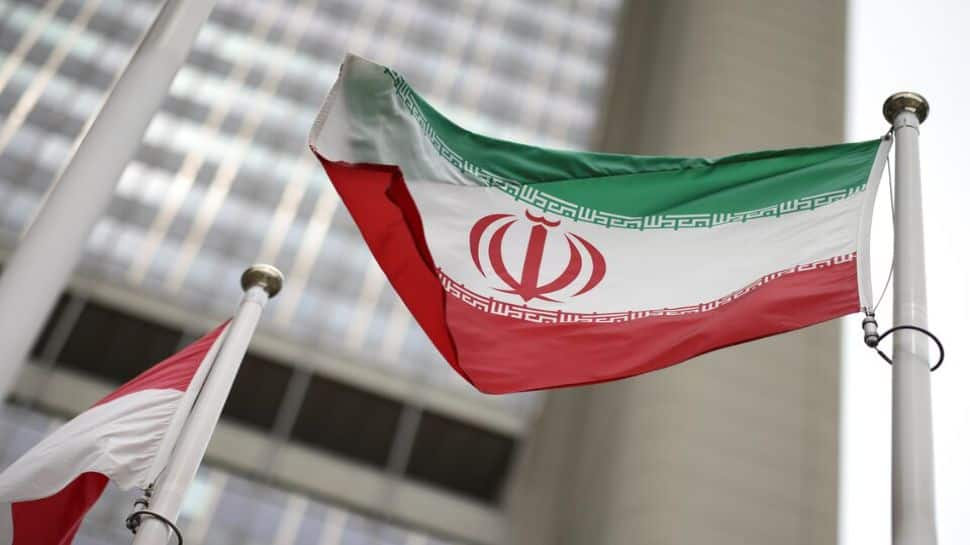World
Iran’s Nuclear Deal Expires: Global Implications and Future of Sanctions

Iran’s Foreign Ministry confirmed on Saturday that the Joint Comprehensive Plan of Action (JCPOA), the nuclear deal established in 2015 with world powers, has officially expired. This agreement, reached in Vienna between Iran and the P5+1 (comprising China, France, Russia, Germany, the United Kingdom, and the United States) alongside the European Union (EU), was designed to limit Iran’s nuclear program in exchange for sanctions relief.
The expiration of the JCPOA, originally set for October 18, 2025, comes exactly ten years after the United Nations Security Council unanimously adopted Resolution 2231 on July 20, 2015. This resolution not only endorsed the JCPOA but also lifted previous UN sanctions against Iran, terminating six earlier Security Council resolutions aimed at curtailing its nuclear activities.
Consequences of the JCPOA Expiration
With the deal’s termination, Iran has stated that all provisions concerning its nuclear program, including restrictions and related monitoring mechanisms, are now considered null and void. The Foreign Ministry emphasized, “All of the provisions of the deal… are considered terminated.”
The JCPOA included stipulations for the International Atomic Energy Agency (IAEA) to ensure compliance with the terms. Throughout the ten-year period, the IAEA reported no evidence of Iran attempting to develop a nuclear weapon. Despite this, following the unilateral withdrawal of the United States from the deal in May 2018 and the subsequent reimposition of sanctions, Iran began to gradually reduce its commitments under the agreement.
Iran initially maintained compliance for one year while waiting for European nations to deliver promised economic benefits. However, as those benefits failed to materialize, Iran invoked Articles 26 and 36 of the JCPOA, which allow a signatory to suspend or reduce its obligations if others do not fulfill theirs. As a result, Iran increased its uranium enrichment levels, reaching up to 60 percent, which, while below weapons-grade levels, raised alarms internationally.
The JCPOA also contained a “snapback” mechanism, enabling any party to restore previous UN sanctions if Iran was deemed to be in significant violation of the deal. On August 28, 2025, the European trio—France, Germany, and the United Kingdom—triggered this mechanism, reinstating sanctions tied to arms transfers, missile activities, and financial dealings. Tehran condemned this action as politically motivated and warned it would end European engagement in its nuclear file.
Impact on Global Relations and Future Diplomacy
Iran’s response to the snapback sanctions was to suspend cooperation with the IAEA, alleging that the agency had provided pretexts for military action against Iran. Foreign Minister Abbas Araghchi stated last week that Tehran sees “no reason to negotiate” with European nations following their snapback action.
In a letter addressed to UN Secretary-General Antonio Guterres on Saturday, Araghchi declared that the expiration of both the JCPOA and Resolution 2231 renders the sanctions “null and void.” Despite the current tensions, Iranian leaders insist on their commitment to a peaceful nuclear energy program, which they argue is a right recognized under the Treaty on the Non-Proliferation of Nuclear Weapons (NPT).
The ramifications of the JCPOA’s expiration are extensive. It marks the end of a significant diplomatic effort aimed at curbing Iran’s nuclear capabilities while fostering international dialogue. As Iran asserts full autonomy over its nuclear program, the path forward remains uncertain. The nation has indicated a willingness to engage in negotiations, provided that guarantees against military actions are secured.
While Iran has maintained a nuclear energy program since the 1950s, the legacy of sanctions, political upheaval, and allegations of nuclear ambitions have complicated its international relations. Western support for Iran’s nuclear initiatives waned after the Islamic Revolution in 1979, leading to decades of economic sanctions and diplomatic isolation.
Despite accusations from Israeli officials, including Prime Minister Benjamin Netanyahu, regarding Iran’s nuclear aspirations, both the IAEA and U.S. intelligence have found no credible evidence of a military dimension to Iran’s nuclear activities.
As the world watches the developments following the expiration of the JCPOA, the focus will likely shift to whether diplomatic efforts can be revived, and what role international powers will play in shaping the future of Iran’s nuclear program and global security.
-

 World3 months ago
World3 months agoSBI Announces QIP Floor Price at ₹811.05 Per Share
-

 Lifestyle3 months ago
Lifestyle3 months agoCept Unveils ₹3.1 Crore Urban Mobility Plan for Sustainable Growth
-

 Science3 months ago
Science3 months agoNew Blood Group Discovered in South Indian Woman at Rotary Centre
-

 Sports3 months ago
Sports3 months agoBroad Advocates for Bowling Change Ahead of Final Test Against India
-

 World3 months ago
World3 months agoTorrential Rains Cause Flash Flooding in New York and New Jersey
-

 Top Stories3 months ago
Top Stories3 months agoKonkani Cultural Organisation to Host Pearl Jubilee in Abu Dhabi
-

 Science3 months ago
Science3 months agoNothing Headphone 1 Review: A Bold Contender in Audio Design
-

 Top Stories3 months ago
Top Stories3 months agoAir India Crash Investigation Highlights Boeing Fuel Switch Concerns
-

 Sports3 months ago
Sports3 months agoCristian Totti Retires at 19: Pressure of Fame Takes Toll
-

 Business3 months ago
Business3 months agoIndian Stock Market Rebounds: Sensex and Nifty Rise After Four-Day Decline
-

 Politics3 months ago
Politics3 months agoAbandoned Doberman Finds New Home After Journey to Prague
-

 Top Stories3 months ago
Top Stories3 months agoPatna Bank Manager Abhishek Varun Found Dead in Well









